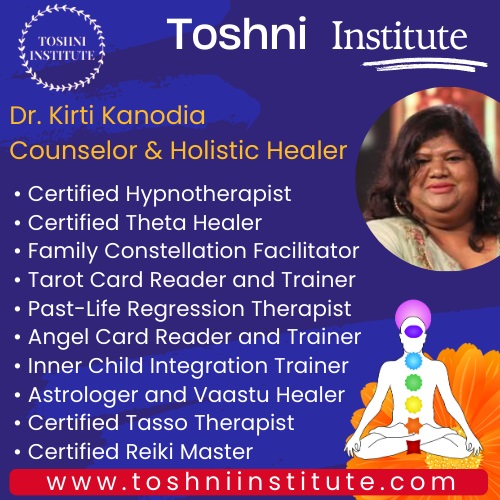wellnessexclusive.com
Your Free Guide to Good Health!

Alternative Therapies
- Alternative Medicine
- Access Bars
- Access Consciousness
- Access Body Processes
- Access Energetic Faclift
- Acupressure
- Acupuncture
- Akashic Records
- The Alexander Technique
- Ancestral Healing
- Angel Healing
- Aura Reading
- Ayurveda
- Bach Flower Remedies
- Bio-Energetics
- Breathwork
- Cosmetic Acupuncture
- Crystal Healing
- Cupping Therapy
- Emotional Freedom Technique (EFT)
- Energy Healing
- Energy Medicine
- Ergonomics
- Family Constellation
- Fengshui
- Geopathic Stress Graphology
- Heal Your Life
- Holistic Solutions
- Holy Fire Reiki
- Homeopathy
- Hypnotherapy
- Jikiden Reiki
- Law of Attraction
- Manual Therapy
- Meditation
- Melchizedek Method
- Merlin Trinity Healing
- Merkaba Healing
- Money Reiki
- Motivational Counseling
- Mudra Healing
- Nadi Vaidya
- Naturopathy
- Neuro Linguistic Programming (NLP)
- Numerology
- Panchakarma (Ayurveda)
- Past Life Regression
- Physiotherapy
- Pranic Healing
- Pyramids
- Reiki
- Rudraksh
- Shamanic Healing
- Sound Healing
- Space Clearing
- Star Magic Healing
- Silva Mind Control Method
- Sujok therapy
- Symphony of Possibilities
- Tarot
- Tera MaiTM Seichem
- Theta Healing
- Unani Medicine
- Violet Flame Healing
- Yoga
- Wicca
Diseases & Conditions
- Acne & Pimples
- Allergies
- Arthritis
- Asthma
- Behavioural Disorders
- Dandruff
- Diabetes
- Emotional Problems
- Gallstones
- Gastritis
- Hairloss
- Heart Diseases
- Hormonal Problems
- Hypertension
- Immune Disorders
- Infections
- Infertility
- Jaundice
- Kidney Disorders
- Liver Disorders
- Menstrual Disorders
- Migraine
- Neck & Back Pain
- Obesity
- Osteoporosis
- Peptic Ulcer
- Prevention
- Prostate Problems
- Psoriasis
- Sexual Dysfunctions
- Sinusitis
- Sleep Disorders
- Skin Diseases
- Stress
- Thyroid Disorders
- Ulcerative Colitis
- Urinary Infections
General Wellness
Motivational Counseling in Jaipur
Omnee Shaktee

Receiving healing is like allowing yourself to free fall with open arms and it is only when you surrender yourself that your wings catch wind and you fly. Omnee Shaktee is an healing centre founded by Mr. Umesh I Moolrajani and Rennu...

Cosmicx Healing Art - Ms. KripaJyoti Nisha Singla

KripaJyoti Nisha Singla (PGDBM) is a Spiritual master, Energy worker, Reiki Master, Theta Instructor, and a dedicated Artist who has been working in the field of healings, spirituality, counselling, relationship healing, family therapy and alternative medicine therapies from more than 12 years.

Ms. Dishaa

As so rightly affirmed by Reiki Grandmaster Dishaa, a young and dynamic lady, an M.B.A turned natural healing expert from Chandigarh (India) for whom life has always been a 'Love for the Moment' which is beautiful yet compassionate...


Dr. Kirti Kanodia
Dr. Kirti Kanodia is a certified Theta Healer, Trained Family Constellation Facilitator, Tarot card Reader, Past life Regression Therapist, Angel card reader, Inner child integration, Astrologer, Tasso Therapist and Reiki Master.

Dr. Geettanjali V. Saxenaa.

Past life Regression Trainer, Family Constellation Trainer, Theta Healing Trainer, Inner Child Work, Angel Therapist, Reiki healer, Hypnotherapy, Crystal Healing, Graphology, Tarot card reader & Astrologer


Are you trying to quit smoking? Beat an addiction? Stick with a diabetes management regimen? Maybe motivational counseling could help.
Motivational counseling helps people who lack adequate motivation to engage in a process of changing harmful or unhealthy behaviors. It is based on principles of motivational psychology, and is designed to produce rapid, internal motivation to change. Motivational strategies mobilize the client's current and potential resources in the change process.
Why Motivational Counseling?
Treatment often doesn't work because individuals aren't adequately motivated. For example, about 80 percent of smokers lack sufficient motivation to succeed in treatment. This helps the client work through his ambivalence and discover his own motivation for change. This therapy helps him make a personal commitment to invest in the process. Motivational counseling has been used successfully in the treatment of addictions and eating disorders. More recently it has been used to help patients with chronic illnesses, such as diabetes and asthma, follow their treatment plans.
How it works ?
No absolute goal is imposed through this. Rather, the therapist helps the client describe problems from a non-clinical perspective. With the counseling, the client sets her own goals, although counselors may help clients see the possibilities and potential life improvement as a result of behavioral change. For example, the therapist may provide facts regarding treatment outcomes or health risks in non-judgmental language. The client can then make informed decisions about her health care and will be more likely to invest the time and energy necessary to succeed. Instead of telling the client how to change, this approach builds motivation and elicits ideas from the client as to how change might occur. It focuses explicitly on motivation as the key factor in triggering lasting change. Counselors ask open-ended questions, engage in reflective and empathetic listening, reframe statements, and encourage questions and dialogue.
1.Develop discrepancies.
Through this process the client is able to see "discrepancies" in his life. In other words, he can see conflicts associated with problem behaviors in terms of his personal goals and values. Counselors assist clients in expressing discrepancies in their own words, and encourage them to voice their objections to change.
2.Avoid arguments and direct confrontation.
3.Roll with resistance.
When resistance is met, counselors are trained to "roll with" it rather than confront it directly. By continuing to ask open-ended questions in non-judgmental language, counselors can help clients begin to identify why they resist making seemingly healthy lifestyle changes.
4.Support self-efficacy.
Self-efficacy is an important concept of this counseling. It is the belief that one has the ability to take charge of certain aspects of one's life. Many clients resist change because they lack this belief or lack the knowledge necessary to move forward with treatment.
Client-centered approach
With motivational counseling, interactions with health care providers are collaborative and collegial, not authoritative or confrontational. It empowers patients, identifies barriers to change, encourages reachable goals and, most importantly, increases treatment participation.






